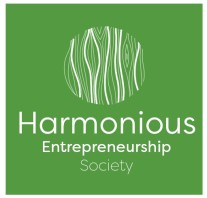
Seaweed is an extremely versatile and important product. Amongst others it is a food, a fertiliser, a medicine, a fuel, a cosmetic and, significantly, a vital element in the ocean ecosystem, producing oxygen, absorbing nutrients and providing a habitat for marine life. However, perhaps its starring role has yet to come. Every year 10 million tons of plastic end up in the sea and in every square mile of ocean, there are 46,000 pieces of plastic, outnumbering sea life by 6 to 1. But it is not just sea life that is affected. Both birds and humans have been found to have plastic in their systems, creating a significant health hazard.
While efforts have been, and are being, made to recycle plastics, as we have seen in Kenya with Gjenge Makers , with TCG in Wales, and Tred in England, seaweed is now being used to create a substitute for plastic packaging. In the UK, a team of students from the University of London’s Imperial College and the Royal College of Art have created Notpla (notpla.com) as an innovative alternative to single-use plastic. Their mission is to “make packaging disappear” by developing products that degrade naturally and can be either consumed or composted at home, without any industrial composting.
In 2014, two Innovation Design Engineering graduates, Rodrigo Garcia Gonzalez and Pierre Paslier, founded Skipping Rocks Lab, initially located in the Imperial Enterprise Laboratory before relocating to their present accommodation in Bethnal Green, East London. Initially, they participated in a seven-week part-time extra-curricular university programme, Imperial Venture Challenge, intended to help students and alumni develop and commercialise an innovative idea. Then, in 2013, they joined Climate KIC, the EU climate innovation initiative, which invested £125,000 in the venture.
Their first product, Ooho, is a soluble, edible capsule that can be used to replace plastic bottles. It is made in a range of sizes from 10-100 ml and was piloted in partnership with Lucozade Sport on contestants in the London Marathon. Research suggests that the product has up to 90% less carbon impact than the equivalent plastic pot or sachet and this is proving popular with over 200,000 capsules having been sold already. However, their principal business model is not the sale of their products but the leasing of the machines that manufacture them and the sale of the necessary materials to enable their clients to produce their own capsules in situ.
To help them grow the business, build the first production machine and establish a manufacturing plant in London they raised £850,000 in 3 days on the Crowdcube platform in April 2017. Then, in August 2018 they obtained their first round of Venture Capital funding from Sky Ocean Ventures to accelerate the development of a second product and grow the team, while in December 2018 they raised £4million in seed round funding for further development. This includes the production of disposable sachets and boxes together with a biodegradable lining for the takeaway industry that replaces the existing plastic-lined cardboard.
Now comprising a team of 17 people, they are beginning to have an impact including supplying 10 takeaway restaurants in London with 40,000 sachets. This means, as they say, that “40,000 people haven’t contributed a one-time plastic sachet to the landfill”. Their product is very different from other bioplastic solutions in that they have completely moved away from using synthetic materials “For us” says Pierre Paslier, “this is crucial in building a sustainable future and ultimately saving our planet”.
While addressing SDGs 8 (Decent Work and Economic Growth), and 9 (Industry, Innovation, and Infrastructure), Notpla is also addressing SDGs 11 (Sustainable Cities and Communities) and 12 (Responsible Consumption and Production) as well as SDGs 13 (Climate Action), 14 (Life Below Water) and 15 (Life on Land). Indirectly, they are contributing, also, to SDG 3 (Good Health and Well-being).
Brown seaweed, the raw material from which Notpla is produced, grows at up to 1 metre per day and is one of nature’s most renewable resources says, Rodrigo Garcia. However, it also contributes to de-acidifying the oceans. This means that should the innovation be adopted globally care must be taken not to overharvest and destroy the ocean ecosystem.
How would you ensure that this does not happen?
References
Montebello, L., (2020), Notpla: If we can eat this packaging, Nature can too. Wewhodo, 19th August.
Price, C., (2020), Seaweed may be the solution to our plastic crisis: a London start-up is making edible packaging out of it. Insider. 13th October.
Slater (2020), An inside look at Notpla’s edible seaweed-based packaging. Packaging Europe. 14 July.
© Harmonious-Entrepreneurship.org (2021). Unauthorized use and/or duplication of this material without express and written permission from the author is strictly prohibited. Excerpts and links may be used, provided that full and clear credit is given to Professor David A. Kirby and Harmonious-Entrepreneurship.org with appropriate and specific direction to the original content.


7 comments